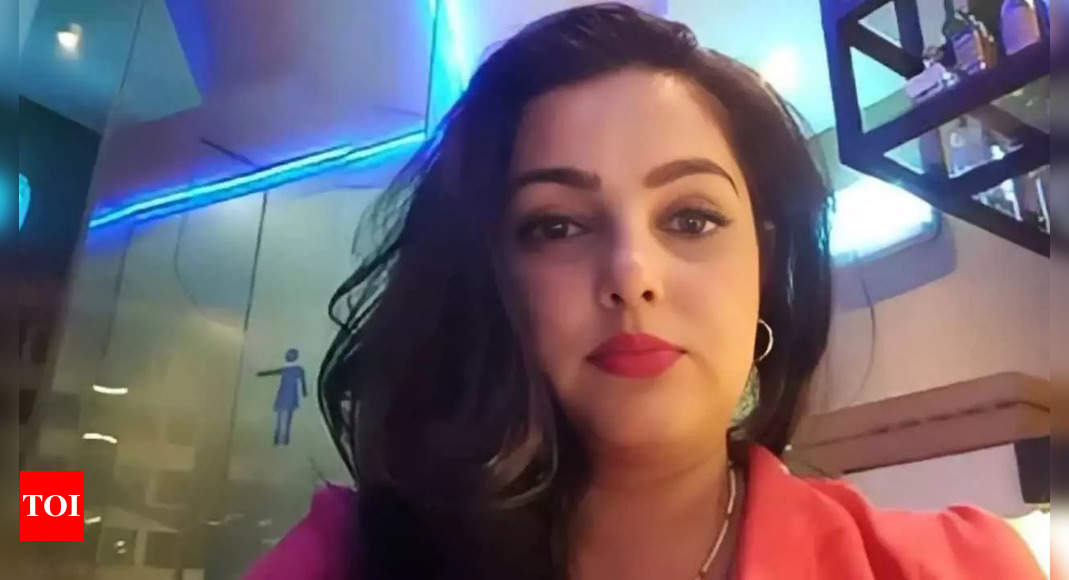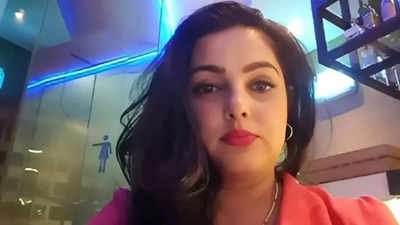Mamta Kulkarni ruled the silver screen in the 1990s before stepping away from the limelight. From being one of Bollywood’s most sought-after stars to embracing a life of spirituality and solitude, she opened up about her journey, her transformation, and what truly matters to her now.
In an exclusive conversation with ETimes, Mamta reflected on her early days in the industry, the challenges of fame, and the controversies that surrounded her – including her association with alleged drug lord Vicky Goswami. She also shared her insights into the power of spirituality, the lessons she learned from her spiritual master, and her thoughts on the possibility of a biopic based on her life.
Did you miss your country during your spiritual journey?
Of course! I started my career when I was 15, and by the age of 18, I had already completed two or three modeling assignments before getting my big break. Around that time, I did a Tamil film called Nanbargal, produced by Mr. S. A. Chandrasekhar, the father of today’s Tamil superstar, Vijay. At that time, Vijay wasn’t a big name yet, and the film didn’t release for a year. It ran for a year in theaters, and my fans even had my name tattooed on their palms! After that, I did another film in the Telugu industry called Prema Sikharam, and once again, I had fans who were so crazy about me that they almost built a temple in my name.
Why did you choose to transition to Bollywood after such a promising start in the South Indian film industry?
I received offers for almost 60 films from South India, but my Tamil and Telugu were not strong, and I didn’t feel comfortable continuing my career in that field. So, I moved to Bombay and did Aashiq Awara with Saif Ali Khan, directed by Mr. Umesh Mehra. That year, I signed four films back to back, and all four became hits. These were Tirangaa, Waqt Hamara HaiBhookamp, and more. As a result, I won the Best Newcomer and Best Face awards. By the end of those four films, I had signed 10-15 new projects.
1995 seems to have been a significant year for you. What do you remember most about that time?
In 1994, Kranti Veer became another huge success, and by 1995, I had seven hits, establishing my position as a superstar. That year, my first film was Andolan, which became the third-highest grosser of the year. Other films followed, including Baazi, The greatest player, Karan Arjunand Ahankar (a film where I worked with Mr. Mithun Chakraborty, who wasn’t in great form at that time, but the film did well). I also did Chandraja Bekabu, which took six months to finalize its music but became a success.
When did you first realize that spirituality was your true calling?
My spiritual journey truly began in 1995-96 when I encountered my spiritual master in the Himalayas. My father had visited him multiple times and encouraged me to seek his blessings when I could. This master had done many years of austerity, and my father would say, “When you’re near Khandala or Lonavala, meet him and take his blessings, because such blessings are rare.”
You mentioned meeting Vicky Goswami. How did that relationship influence your spiritual journey?
In 1996, I met Mr. Vicky Goswami, a businessman with jets and casinos, but I never knew where his wealth came from. He was in trouble soon after we met, and I learned he had been jailed for drug-related issues. Still, I believed he could change. Spirituality has given many people a chance to turn their lives around, like the sage Valmiki, who wrote Ramayana after turning his life around from a criminal to a saint.
How did the loss of your mother impact your career and life choices?
In 2000, after my mother passed away, I felt a vacuum in my life. I had seen everything that Bollywood had to offer – the material success, the luxury. I had met the Sultan of Brunei, the second richest man in the world at the time, and was treated like royalty. His daughter Princess Hamida is a big fan of mine. But despite all this, I sought a more meaningful, spiritual path.
Controversies have surrounded you for years. How do you handle them now?
What can we do? It’s written about everyone. I don’t think anyone has been spared from controversies. You’ve seen the best of the figures, and they have not been spared – not even God when they have to say negative things. So, where do I stand in all this? They say, ‘In many mouths, many tongues.’ Some will say good, some will say great, and some will say bad. You have to accept everything. If you’re hearing good things about yourself, you should be prepared for the worst too.
What would you like people to understand about the rumors and stories written about you?
A lot of things written are not right. I always say people should be responsible for their actions. There’s the law of karma – everything goes around and comes around, like a circle. If you say something wrong about someone, something wrong will be said about you. If you do something wrong to others, something wrong will be done to you.
People should be more mindful about speaking negatively about someone they know little to nothing about. For instance, rumors in the tabloids about Mamta Kulkarni being married to Vicky Goswami are completely untrue – I’m not married to anyone because I’ve never had the time for that. I sincerely request people to stop using titles like ‘husband’ or ‘wife’ in connection with me. I don’t know what else to say about these baseless rumors. Some suggest I should pursue legal action or send notices, but I have no intention of doing that.
There have been talks about a biopic on your life. What are your thoughts on that?
Yes, I was offered one a couple of years back. There were 2-3 people interested in making a biopic on me – a woman who has gone from being at the peak of Bollywood stardom, living a luxurious life, to following an ascetic life, the life of a seer. Let me see if I find something sensible; if I do, I can definitely think about it.

